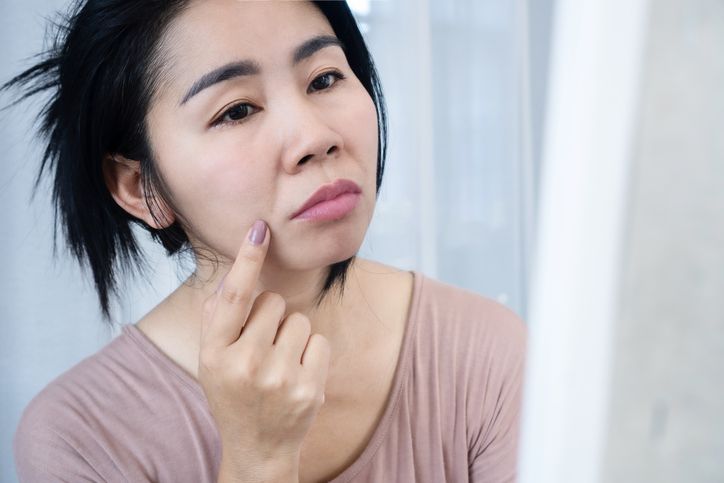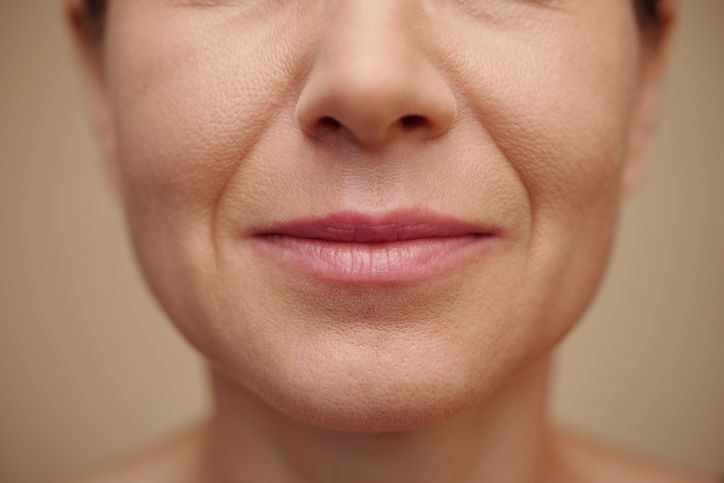
- Home
- Trend
- Weight Loss Strategies
- Acne Tips
- Hair Health Information
- Blemish Removal Tips
- Acne Scar Removal Tips
- Muscle Building Techniques
- Intimate Care Tips
- Postpartum Intimate Care
- Eye Bags Wiki
- Tips for Face Slimming
- Secret of Permanent Hair Removal
- Breast Enlargement Tips
- Cure to Snoring
- Marionette Lines
- Skin-Tightening Secrets

免費體驗
Acne Scarring Treatment
1 Minute Self-Registration
Date should not be before minimal date
Acne scars are marks or indentations that result from the healing of inflamed acne lesions. They can affect the appearance and confidence of many people who have experienced acne. However, there are some home remedies that may help improve the appearance of acne scars and promote healthy skin.
1
Know Them Before Getting Rid of Acne Scars
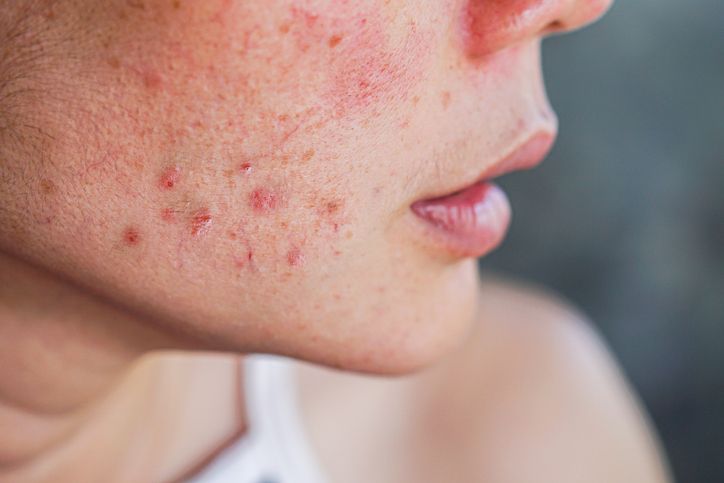
Acne scars are marks left on the skin after the acne heals. They can affect your appearance and self-confidence. There are different types of acne scars, depending on how the skin heals and how much tissue is lost or gained. Here are some common types of acne scars and how to treat them:
Atrophic scars
Atrophic scars are shallow depressions in the skin that occur when there is not enough collagen to fill up the wound. They can be further classified into ice pick, boxcar, and rolling scars. Ice pick scars are deep and narrow, like punctures from an ice pick. Boxcar scars are wide and have sharp edges, like chicken pox marks. Rolling scars are wide and have smooth edges, giving the skin a wavy appearance. Atrophic scars can be treated with dermal fillers, chemical peels, laser resurfacing, microneedling, or subcision.
Hypertrophic or keloid scars
Hypertrophic or keloid scars are raised bumps on the skin that occur when there is too much collagen produced during wound healing. They can grow beyond the original acne lesion and become firm and hard. They are more common in people with darker skin tones and on the chest, back, and shoulders. Hypertrophic or keloid scars can be treated with corticosteroid injections, silicone sheets or gels, cryotherapy, laser therapy, or surgery.
Post-inflammatory hyperpigmentation (PIH)
Post-inflammatory hyperpigmentation (PIH) is not a true scar but a discoloration of the skin that occurs after inflammation. It can be pink, red, brown, or black, depending on your skin tone and the severity of the acne. PIH usually fades over time, but it can take months or years to completely disappear. You can speed up the process by using sunscreen, topical creams with ingredients like hydroquinone, azelaic acid, or niacinamide, or chemical peels.

2
Do Home Remedies Work for All Kinds of Scars?
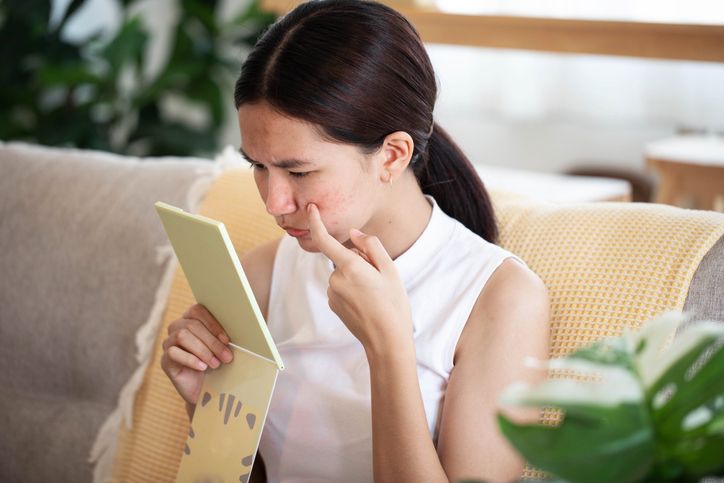
Acne scars can be improved with proper care and treatment, and one of the best way to prevent acne scars. Do treat acne early and avoid picking or popping your pimples. Home remedies may help lighten certain types of scars, including:
Hyperpigmentation scars
Lemon juice, aloe vera, and honey may help fade dark spots caused by hyperpigmentation.
Hypertrophic scars
Applying silicone gel or sheets may help flatten and lighten raised scars.
Acne scars
Exfoliating with baking soda, using rosehip oil, or applying diluted apple cider vinegar might improve the appearance of acne scars.
Old scars
Massaging with oils like vitamin E or coconut oil could potentially help fade older scars.
It's essential to note that home remedies may not work for all scars, and individual results may vary. If you have concerns about your scars' appearance or want more effective treatments, consult a dermatologist or healthcare professional for personalised advice.
- What Causes Strawberry Nose? Here’s A Breakdown Of 3 Popular Treatments
- Breakout Between The Eyebrows: 6 Major Internal And External Causes + Treatment Solutions
- Get Rid of Chin Acne: Effective Solutions + Prevention Tips
- Pore-Refining Treatments Explained: 5 Popular Procedures + Keys for Safe Skin Renewal
3
Natural Acne Scar Removal
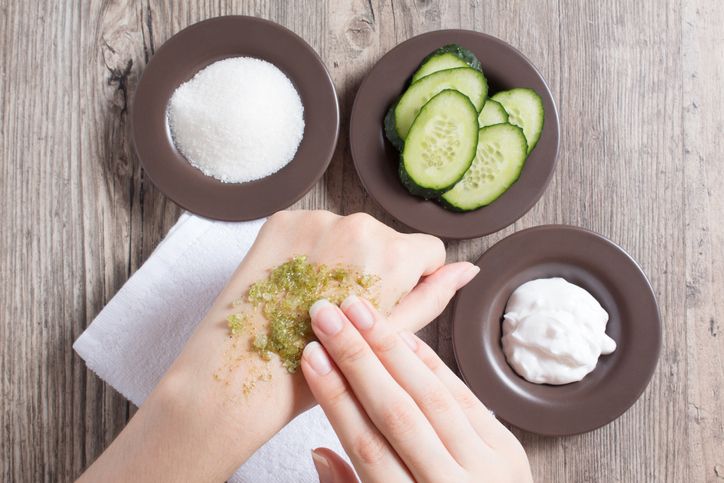
Some of the natural ingredients that people have used to treat acne scars include:
Aloe vera
Known for its calming effects, aloe vera can help reduce swelling and speed up the healing of skin. If you put aloe vera gel directly on acne scars, it may help them fade and make your face feel better.
Apple cider vinegar
This is a popular remedy for many skin conditions, including acne and acne scars. Apple cider vinegar contains organic acids, such as citric acid, that can help kill the bacteria that cause acne and reduce inflammation and redness. It may also help fade acne scars by exfoliating the skin and improving its texture.
Tea tree oil
This is an essential oil that has antibacterial, anti-inflammatory and wound-healing properties. It can help prevent and treat acne breakouts, as well as reduce the appearance of acne scars by stimulating collagen production and reducing inflammation.
Coconut oil
This is a natural moisturiser that can help heal and soften the skin. Coconut oil contains fatty acids, such as lauric acid, that can fight acne-causing bacteria and reduce inflammation. It may also help fade acne scars by improving the skin's elasticity and hydration. To use coconut oil, warm a small amount in your hands and massage it into the affected area. Leave it on for as long as possible, or overnight if possible. Repeat this once or twice a day until you see improvement.
Honey
Honey has natural antibacterial and anti-inflammatory qualities that may help reduce redness and speed up skin healing. Some people with acne scars find it soothing and helpful to put a honey mask on the scarred areas.
Green Tea Extract
Antioxidants in green tea can help protect the skin from damage and reduce swelling. Some people put green tea powder on their skin or drink green tea often to help keep their skin healthy.
Rosehip Oil
Rosehip oil is full of essential fatty acids and antioxidants, which could help the face heal and make scars look better. If you keep putting rosehip oil on the scars, it might help keep the skin moist and make the marks less noticeable over time.

4
DIY Your Own Mixture at Home to Reduce Acne Scars!
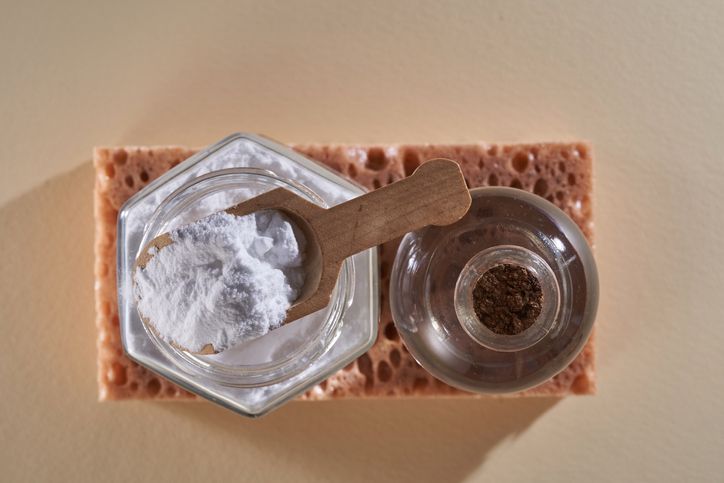
You may want to start whipping some of these home remedies if you are looking for a natural way to reduce the appearance of acne scars. However, keep in mind that these are not proven by scientific studies and may not work for everyone, and remember to always do a patch test before applying anything new to your skin.
Anti-inflammatory mixture
One possible home remedy is to make a paste with gram flour, yoghourt, turmeric, lemon juice, and rosewater. These ingredients have anti-inflammatory properties that could help fade acne scars. To use this remedy, mix one tablespoon of gram flour, half a tablespoon of yoghourt, one teaspoon of turmeric, one teaspoon of lemon juice, and one tablespoon of rosewater in a bowl. Apply the paste evenly over your face using a brush and leave it on for 15 to 20 minutes. Rinse it off with cold water and pat your skin dry.
Antibacterial mixture
Another possible home remedy is to apply a mixture of lemon juice, honey, and baking soda to your acne scars. Lemon juice contains citric acid, which may exfoliate and brighten the skin. Honey may moisturise and heal the skin, while baking soda may balance the pH and act as a mild scrub. To use this remedy, mix half a tablespoon of lemon juice, half a tablespoon of honey, and one teaspoon of baking soda in a small bowl. Apply the mixture carefully to your acne scars using a cotton ball or a brush. Let it dry for 15 minutes before washing it off with cold water.
Skin-lightening mixture
A third possible home remedy is to dab some apple cider vinegar on your acne scars. Apple cider vinegar contains acetic acid, which may kill bacteria and reduce inflammation. It also contains lactic acid, which may improve the texture and pigmentation of acne scars. To use this remedy, dilute some apple cider vinegar with water in a 1:1 ratio. Dip a cotton ball into the solution and apply it directly to your acne scars. Leave it on for 5 to 10 minutes, then rinse it off with water.
However, remember that these are not guaranteed to work and may cause irritation or allergic reactions in some people. If you have severe or persistent acne scars, you may want to consult a dermatologist for more effective treatments.

免費體驗
Acne Scarring Treatment
1 Minute Self-Registration
Date should not be before minimal date
5
Natural Remedies Take Too Long? Try These Methods in Treating Acne Scars

Acne scars are a problem that won't go away, so some people have looked for ways to get rid of them that aren't standard but seem to work. These new ways to help reduce the look of atrophic acne scars use the power of natural ingredients, cutting-edge technologies, and specialised methods. From microneedling with platelet-rich plasma (PRP) to the soothing effects of honey masks, these unusual treatments give hope to people who want smoother, more refreshed skin. Even though each person's results may be different, these unique methods offer interesting options if you would like to add something new to your skincare routine!
Micro needling with Platelet-Rich Plasma (PRP)
Micro needling, also called collagen induction therapy, is a treatment that uses small tools to make controlled micro-wounds in the skin. Some people choose micro needling with platelet-rich plasma (PRP), which is taken from the person's own blood and put on the skin during the process. PRP has growth factors in it that may help the skin heal faster.
Silicone Gel Sheets
Silicone gel sheets are sheets with a sticky back that are put on the scar. They work by making a layer that keeps moisture in and makes the scars flatter over time. Even though it is usually used for keloid scars, some people have said it helped with acne scars.
Face massage
A gentle rub of the face with certain oils or serums can help improve blood flow and drain lymph fluid, which could help the skin heal. But it's important to be careful and not press too hard, especially if you have active acne or sensitive skin.
Cryotherapy
In cryotherapy, liquid nitrogen is used to freeze the scar tissue. Most of the time, this method is used for keloid scars, but some people have said that it helped their acne scars.
Derma rolling at home
Derma rolling, which is also called micro-needling at home, is done by using a small tool with tiny needles to make tiny holes on the surface of the skin. But you should use this method with care, because if you don't do it right, you could hurt your skin or get an infection. It's important to follow safety rules and use clean tools.
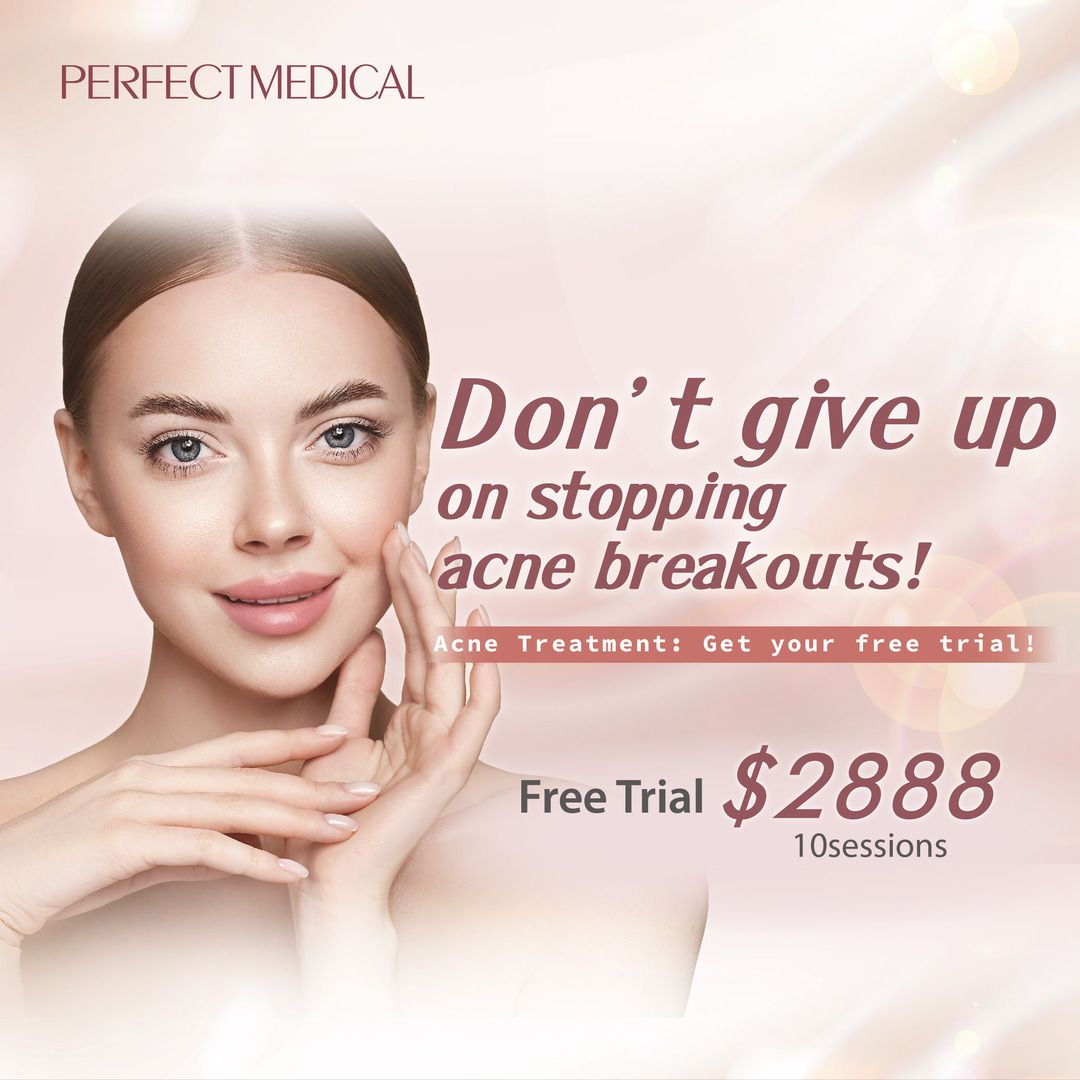
6
Remove Acne Scars Naturally By Taking Care of The Base of Your Skin: How Perfect Medical Can Help

If you want to get rid of acne scars naturally, the first thing you should work on is your skin condition. After all, keeping your skin in a healthy balance is crucial, so you will not have to worry about the presence of new scars, and thankfully, Perfect Medical may be able to help!
The Acne Scarring treatment is great for all kinds of acne scars, such as rolling scars, hypertrophic scars, raised scars, atrophic scars, boxcar acne scars, dark and red spots, ice-pick scars, and more! So, if you want to get rid of these enemies without putting your sensitive skin layer at risk, you don't need to look any further.
In this treatment, a 1064 nm laser is used to get deep into the skin. The photothermal process breaks up the extra melanin that causes acne so that the body can get rid of it. Laser energy also speeds up the production of collagen and elastin, which help skin tissues heal.
In this treatment, oil, dirt, and dead skin cells are sucked out of the pores and drained using a two-way spiral suction and draining system. This helps to deep clean and cleanse the pores. Once the skin is clean and free of sebum and dirt, a medical-grade hydrating solution is pumped into the pores to fix the water-to-sebum ratio and boost collagen production.
After all, if you clean your face and stop it from making grease, acne is less likely to come back. This makes the face softer, brighter, cleaner, and healthier. Even if you have dark or odd skin tone, you are less likely to get deeper scars. Choose the Acne Scarring Treatment from Perfect Medical today to get rid of acne scars!

免費體驗
Acne Scarring Treatment
1 Minute Self-Registration
Date should not be before minimal date
FAQ

What are atrophic acne scars, and how do they differ from other types of scars?
Atrophic acne scars are depressed or indented scars that result from a loss of tissue during the healing process of severe acne. They are categorised into three main types: icepick scars, boxcar scars, and rolling scars. Unlike raised scars, atrophic scars appear sunken and may require specific treatments for improvement.
What are icepick scars, and why are they called so?
Icepick scars are a type of atrophic acne scar characterised by narrow, deep holes in the skin's surface that resemble the marks made by an icepick. They often appear as small, deep pits and are challenging to treat due to their depth.
Can aloe vera gel help with acne scars?
Aloe vera gel is known for its soothing and anti-inflammatory properties, which can help reduce redness and inflammation around acne scars. While it may provide some relief, it's essential to understand that aloe vera gel alone may not significantly diminish the appearance of deep atrophic acne scars. Professional treatments, like laser therapy or chemical peels, are often more effective for such scars.
Is there any common triggers for acne breakouts?
Acne breakouts can be triggered by various factors, including hormonal fluctuations (such as during puberty or menstruation), increased sebum production, clogged pores, bacteria (Propionibacterium acnes), diet, stress, and certain medications. Identifying and addressing the underlying causes can help prevent future breakouts.
Which acne scar treatment helps to reduce them effectively?
Several treatment options can help reduce the appearance of acne scars, depending on the type and severity. These may include topical treatments with retinoids or alpha hydroxy acids, dermal fillers to lift and fill depressed scars, chemical peels to promote skin renewal, microneedling to stimulate collagen production, laser therapy to resurface the skin, and in more severe cases, surgical procedures like punch excision or subcision.





